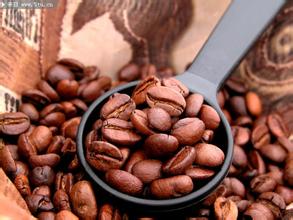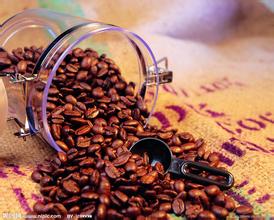Flavor and taste of sun-washed and washed coffee beans introduction of grinding scale for regional treatment of manor production
Sun and water washed coffee beans
1. Choose beans: if you put the harvested fruit in the water tank, the ripe fruit will sink, while the immature and overripe fruit will float up and can be removed.
two。 Drying: place the selected ripe fruits in the square and expose them to the sun for 5 or 6 days until fully dried. At this time, the fruit turns dark brown and the moisture content drops to 13%.
3. Shelling: after drying, the peel becomes fragile and easy to fall off, and can be removed by machine. Farms run by enterprises usually have their own shelling factories, while small farms are processed by processing centers.
4. Selection and grading: exquisite farms identify defective beans manually or by machine, pick them out and throw them away. The manual selection method usually uses a conveyor belt about 1 meter wide. Several female workers sitting on both sides pick out the bad beans visually. On some good farms, they are even selected several times until the defective beans are not seen. The machine selection rule uses computer identification to remove defective beans. Then, there is a grading process in which coffee beans are divided into several quality grades according to established standards, with good coffee entering the selected coffee market and bad coffee flowing into the commercial coffee market.
5. Polishing: the exocarp and endocarp can only be removed by shelling. At this time, the silver film is still wrapped in the outer layer of the seed, and the film has to be ground off by machine. Then, pack the coffee beans into a bag of 60 kilograms, which can be sold at a price. The weight of bags varies slightly from region to region, most of which are packed in sacks of 60 kg, while Jamaican Blue Mountain Coffee is packed in wooden barrels, with both 30 kg and 70 kg.

Important Notice :
前街咖啡 FrontStreet Coffee has moved to new addredd:
FrontStreet Coffee Address: 315,Donghua East Road,GuangZhou
Tel:020 38364473
- Prev

What are the two main coffee varieties in the world today?
. American-style coffee machine suitable for a short time everyone drink coffee, mainly with steamed way. 6. My favorite espresso coffee is espresso coffee made in an espresso machine, which uses the extraction method. Mainly steam high-pressure automatic machines and semi-automatic machines. It's expensive. Poor people and families don't use it. Starbucks does it that way. Why did Starbucks choose this?
- Next

Chinese coffee beans origin grade flavor description processing method grinding scale variety introduction
Coffee beans Yunnan coffee is the main variety of iron pickup, origin of Ethiopia. Blue Mountain Coffee is one of these varieties. In addition to iron pickups, Yunnan Pu 'er also has dozens of varieties of coffee from all over the world, which can be planted here. Therefore, the quality of coffee in China is actually the best in the world, just because of the right to speak in the international market, the raw materials and processing of coffee,
Related
- What brand of black coffee is the most authentic and delicious? what are the characteristics of the flavor of the authentic Rose Summer Black Coffee?
- Introduction to the principle and characteristics of the correct use of mocha pot A detailed course of mocha pot brewing coffee is described in five steps.
- Which is better, decaf or regular coffee? how is decaf made?
- How much is a bag of four cat coffee?
- How about four Cat Coffee or Nestle Coffee? why is it a cheap scam?
- Which is better, Yunnan four Cats Coffee or Nestle Coffee? How about cat coffee? is it a fake scam? why is it so cheap?
- How about Cat Coffee? what grade is a hoax? which instant coffee tastes better, four Cat Coffee, Nestle Coffee or G7 coffee?
- Process flow chart of coffee making-Starbucks coffee making process what coffee tastes good at Starbucks
- The top ten best coffee beans in the world Rose summer coffee or Tanzanian coffee tastes good
- Yunnan four cat coffee is good to drink?_four cat coffee is a big brand? four cat blue mountain coffee is fake?

